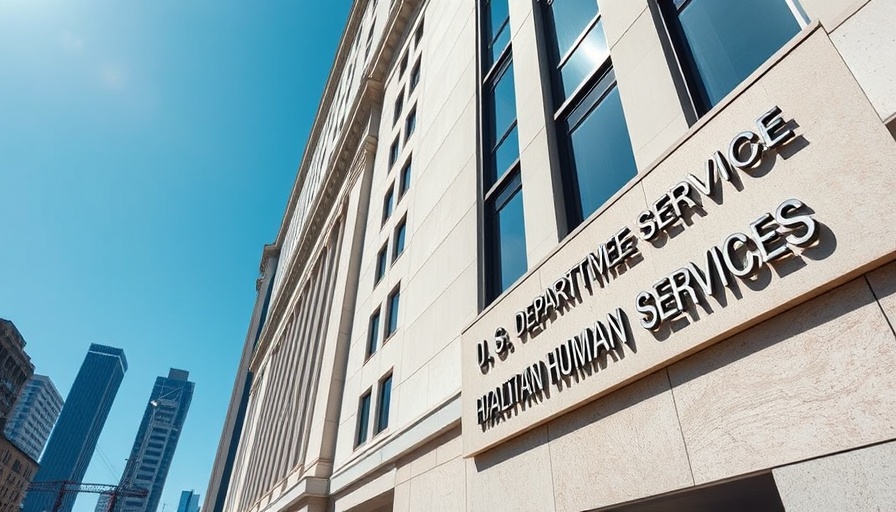
How Recent HHS Cuts Could Impact Patient Care Nationwide
The recent announcement by the Department of Health and Human Services (HHS) regarding sweeping budget cuts raises serious concerns regarding access to essential healthcare services. For independent physicians, nurse practitioners, and other healthcare providers, these cuts threaten to disrupt the trend of patient-centered care that has been gaining momentum in recent years.
Understanding the Implications of Medicare Reimbursement Changes
One of the most pressing issues surrounding these cuts is the impact on Medicare reimbursement. Healthcare providers, particularly those in rural clinics and independent practices, rely heavily on steady reimbursement rates to sustain their services. In recent discussions, it's been pointed out that alterations to these rates could result in significant financial strain, affecting everything from operational overhead to staff salaries. Without a stable reimbursement structure, the future of patient care delivery hangs in the balance.
The Rise of Remote Patient Monitoring and Its Vulnerabilities
The growing adoption of remote therapeutic monitoring (RTM) programs and other technological advancements in healthcare has been seen as a beacon of hope for maintaining continuity of care. RTM serves as a critical tool for engaging patients, especially for those managing chronic conditions from the comfort of their homes. However, with the looming budget cuts, the sustainability and funding allocations for these patient engagement tools may face substantial challenges, directly impacting patient outcomes.
Potential Strategies for Navigating Financial Challenges
Despite the ominous news of these cuts, there are pathways for healthcare providers to adapt. Incorporating AI-driven solutions and practice automation can significantly enhance operational efficiency. For instance, utilizing AI for healthcare, such as voice AI agents or automated patient outreach strategies, can help reduce overhead costs while improving patient satisfaction.
Future Trends and Actions to Consider
Providers must stay vigilant and proactive in lobbying for policies that protect and possibly enhance access to resources. Engaging in community health outreach or fostering joint partnerships among healthcare entities will be essential in advocating for necessary funding. Additionally, the adoption of patient-centric care models can improve provider retention and enhance care delivery, making practices more resilient against such funding fluctuations.
Conclusion: Take Action to Ensure Continuity of Care
As independent healthcare providers navigate these turbulent waters, understanding the implications of HHS cuts and actively seeking solutions is imperative. Embracing innovative healthcare automation tools and voicing concerns about reimbursement policies can make a significant difference in advocating for patient access to quality care. Stay informed about policy changes that could impact your practice and engage with your community to ensure that everyone has the support they need, especially during challenging times.
 Add Row
Add Row  Add
Add 




 Add Row
Add Row  Add
Add 

Write A Comment